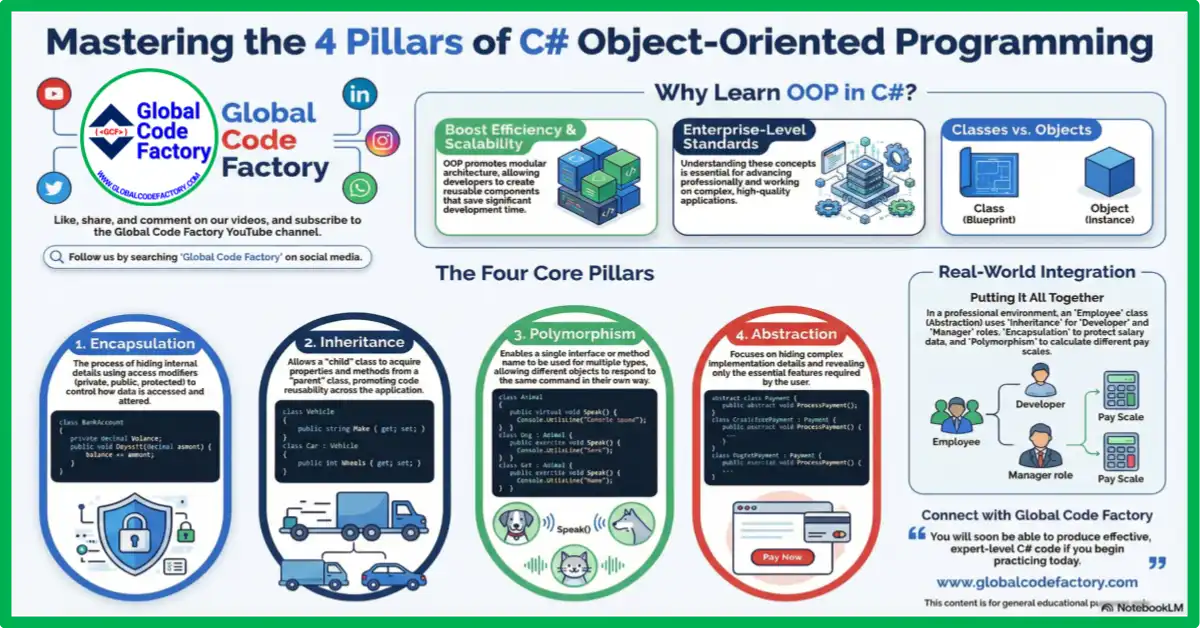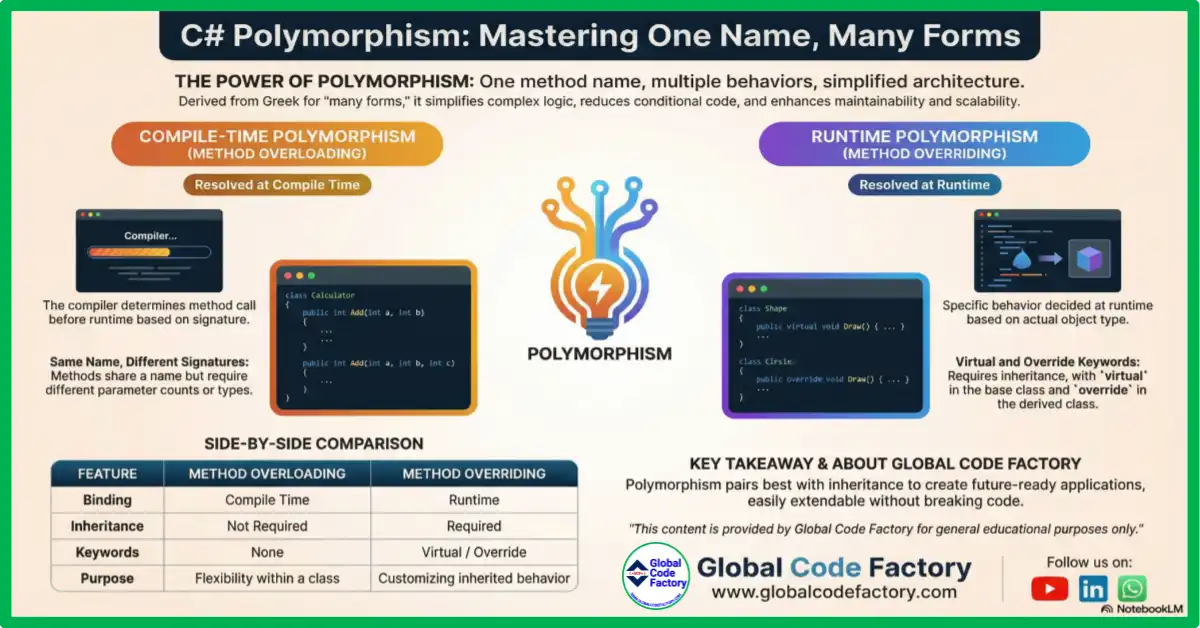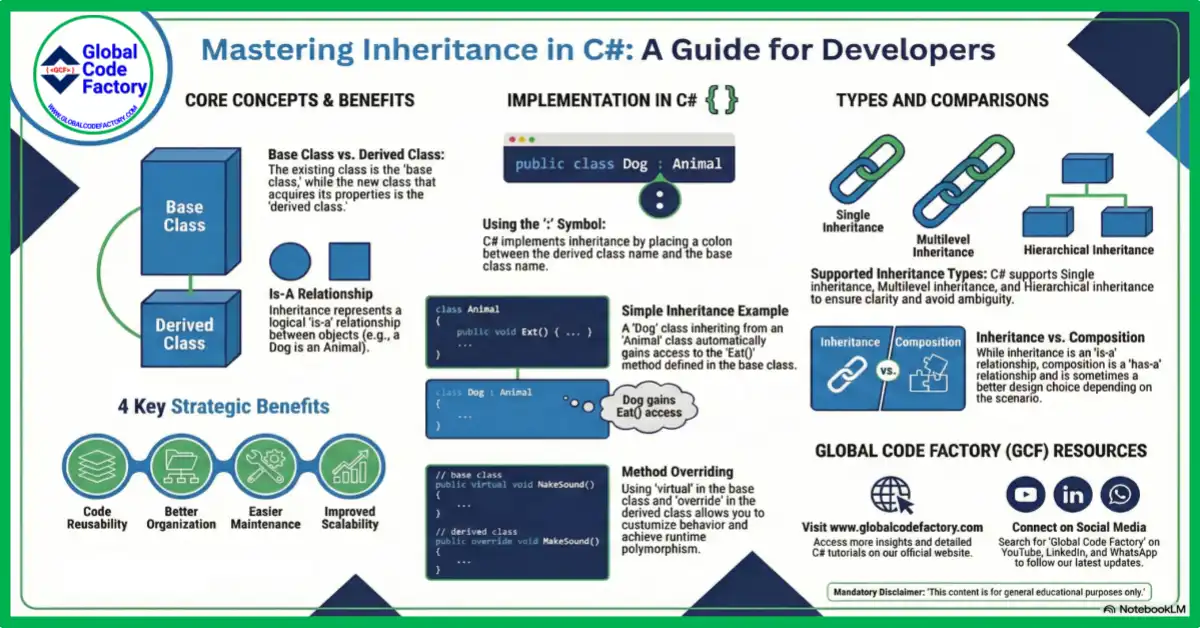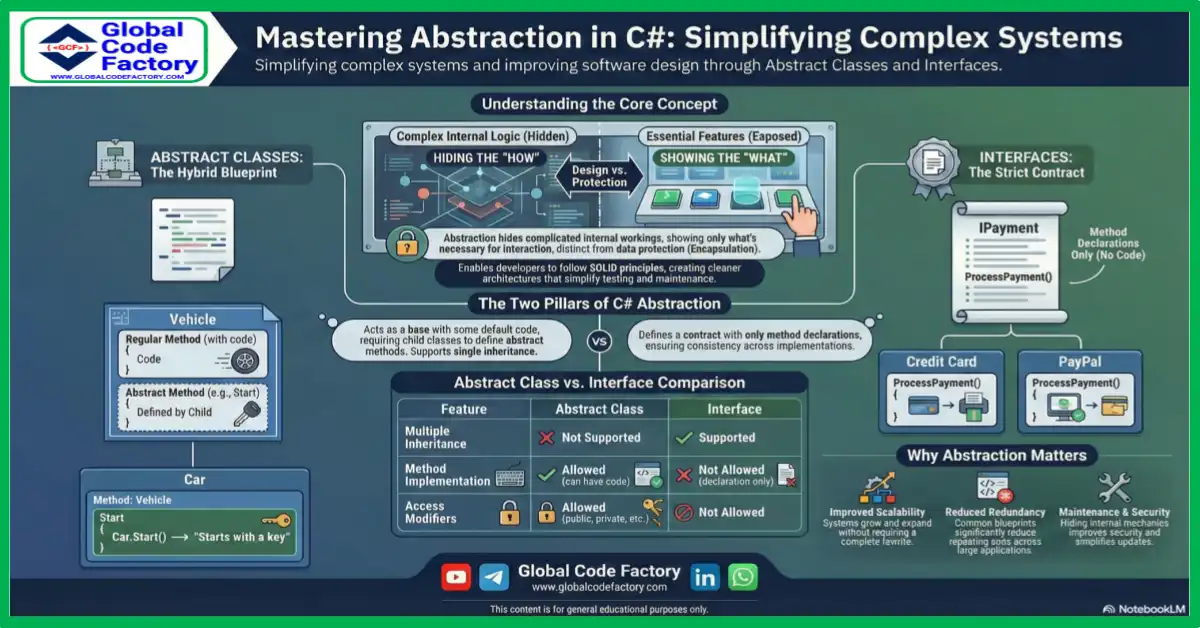Object-Oriented Programming Basics in C#
It is one of the fundamental ideas in modern software development. It facilitates the creation of scalable, manageable, and reusable code in C#. Developers widely use these ideas to create enterprise-level software. In the long run, gaining an understanding of this idea can help you advance professionally and develop your skills in coding.
In essence, the goal of object-oriented programming, or OOP, is to build software based on real-world entities. Classes and objects are the C# representations of these entities. An object is a real instance, whereas a class defines the blueprint. As a result, this approach facilitates code extension and maintenance.
Why Learn Object-Oriented Programming in C#?
In fact, Gaining knowledge of C# object-oriented programming gives the foundation for working on complex applications. It facilitates team collaboration as well. Moreover, OOP promotes modular architecture and boosts efficiency.
Transitioning from procedural to object-oriented design helps you write cleaner and more logical code. Additionally, it saves development time by enabling the reuse of pre-existing components.
Core Principles of Object-Oriented Programming in C#
There are four primary OOP principles that C# adheres to. Each is essential to the design of the application.
1. Encapsulation
Encapsulation is the process of hiding the internal details of an object. By using access modifiers like private, public, and protected, you can manage who has access to its data.
Example of Encapsulation in C#:
The balance field is private in this case. Control over how the balance is updated is ensured by the fact that other code cannot directly alter it.
2. Inheritance
Inheritance allows a class to acquire properties and methods from another class. For this reason, it promotes reusability.
3. Polymorphism
One interface or method name can be used for multiple types thanks to polymorphism.
Example of Polymorphism in C#:
In this case, the Speak method behaves differently depending on the object type.
4. Abstraction
The goal of abstraction is to hiding implementation and reveal only the information that is required.
Example of Abstraction in C#:
Full Example: All Object-Oriented Programming Principles Together
In the following example, a single program incorporates abstraction, polymorphism, inheritance, and encapsulation.
This code makes use of polymorphism in the CalculateSalary method, encapsulation for salaries, inheritance for Developer and Manager, and abstraction with the Employee class.







